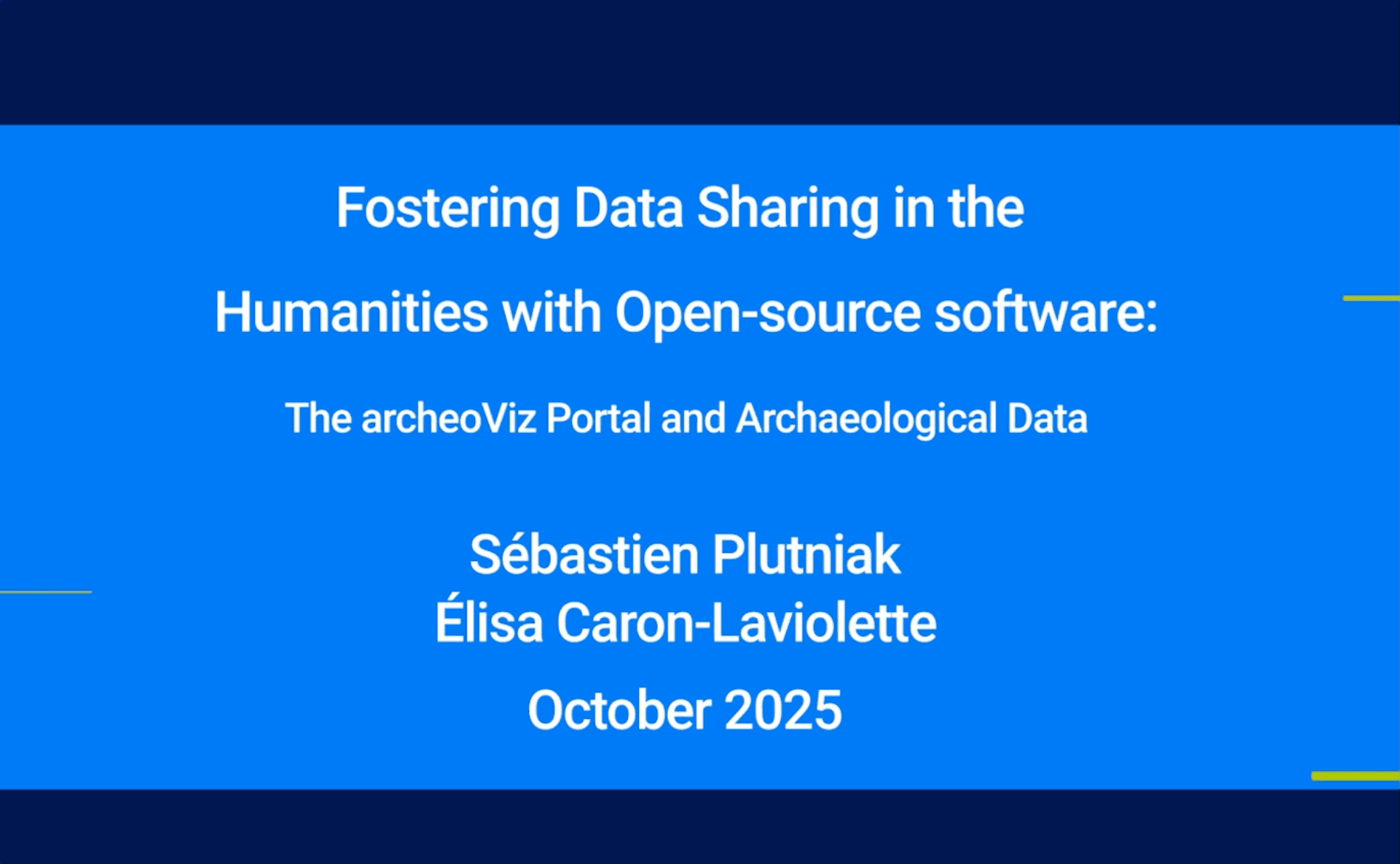Fostering Data Sharing in the Humanities with Open-source software: archeoViz and the archeoViz Portal for Spatial and Statistical Exploration of Archaeological Data
Incentives and advocacy of open science principles have spread for more than two decades in the social sciences and humanities. Although there have been obvious improvements during this period, the current situation is far from satisfying. In archaeology, for example, despite the long-standing interest in this field for database-systems, recent literature highlights several barriers to the availability of field data: 1) the absence of user-friendly tools, 2) a lack of data management training, 3) limited time to prepare data for publication, and 4) insufficient recognition of data publishing efforts. To address these issues, the “archeoViz” application offers a solution as an open-source stand-alone application for visualising and statistically exploring spatialised archaeological data. It is complemented by the “archeoViz Portal”, an interactive catalogue of “archeoViz” use-cases (https://analytics.huma-num.fr/archeoviz/home). Ultimately, the “archeoViz” ecosystem facilitates data sharing and the visual restitution of archaeological findings, benefiting scientists and the general public alike.
In this presentation, taking archaeology as a case study, the underlying principles of the “archeoViz” ecosystem will be presented and illustrated, to fuel a more general discussion about the advocacy of open science principles in the social sciences and humanities.
About the Speakers
Sébastien Plutniak (PhD in sociology, Master in archaeology) is a full-time research scientist at the CITERES lab (Tours, France) and a former member of the French School in Rome. His research revolves around computational methods in the humanities and the social sciences, which he investigates: 1) in a sociohistorical perspective, 2) in a practical way, developing methods and software tools for archaeological research.
Élisa Caron-Laviolette is a postdoctoral researcher in archaeology at the TEMPS lab (Nanterre, France), specialising in the spatial analysis of prehistoric domestic spaces. Her work combines field recording, GIS, and other digital and computational tools to investigate the organisation and use of space in hunter-gatherer campsites, with particular attention to material culture such as stone tools. She also engages with comparative perspectives, including occasional studies of sedentary groups.
Credits
Subtitles for this video resource were provided by Áine Foley.
Learning Outcomes
After watching this webinar, learners will be able to:
- understand the challenges of open science in spatial humanities resources
- appreciate the underlying principles of the “archeoViz” ecosystem
- make use of the “archeoViz” application for visualising and exploring spatial data

